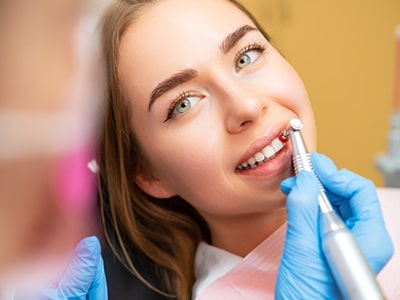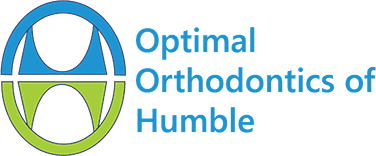How Orthodontics Can Help Alleviate Bruxism (Teeth Grinding)

Understanding Bruxism and Its Causes
CBruxism can result from a variety of factors, including stress, anxiety, sleep disorders, and misaligned teeth or jaws (malocclusion). When teeth don’t come together properly, it puts extra strain on the muscles in the jaw, leading to clenching and grinding, especially during sleep. Left untreated, bruxism can lead to complications such as:
- Worn-down or chipped teeth
- Jaw pain and stiffness
- Chronic headaches or migraines
- TMJ disorders
- Sleep disturbances
How Orthodontics Can Help
Orthodontic treatment is highly effective in addressing the underlying causes of bruxism, particularly if it’s related to bite misalignment. By correcting the alignment of the teeth and jaw, orthodontics can help alleviate the tension that contributes to teeth grinding. Here’s how orthodontic treatment at Optimal Orthodontics of Humble can help reduce or eliminate bruxism:
1. Correcting Malocclusion (Bite Problems)
One of the most common causes of bruxism is malocclusion, or an improper bite. When your teeth don’t fit together as they should, your jaw muscles work harder to compensate, leading to grinding and clenching. Orthodontic treatments such as braces or Invisalign can realign your teeth and improve your bite, reducing the strain on your jaw muscles and alleviating bruxism over time.
For patients with more severe bite issues, our board-certified orthodontists may recommend additional treatments like palatal expanders or other appliances to help correct jaw alignment and relieve pressure on the teeth and muscles.
2. Redistributing Pressure on Teeth
Bruxism often occurs because certain teeth take on more pressure than others due to misalignment. By straightening the teeth and improving bite function, orthodontics helps to evenly distribute the pressure across all teeth. This reduction in localized stress can significantly lower the frequency and severity of teeth grinding.
3. Orthodontic Retainers and Nightguards
For patients who experience bruxism, using an orthodontic retainer or a custom nightguard can provide immediate relief by acting as a barrier between the upper and lower teeth. Retainers, particularly those designed for post-orthodontic treatment, can help maintain proper alignment while preventing the teeth from grinding against each other.
At Optimal Orthodontics of Humble, we can create a custom-fit nightguard designed specifically for your mouth. Wearing a nightguard can prevent damage caused by grinding, protect your orthodontic work, and reduce muscle strain in the jaw.
Preventing Further Damage
Treating bruxism early with orthodontics is important to prevent long-term damage to your teeth and jaw. Teeth grinding can wear down the enamel, making teeth more susceptible to cavities, fractures, and sensitivity. In severe cases, untreated bruxism can lead to the need for restorative treatments such as crowns, bridges, or even tooth extractions.
By addressing the root cause of bruxism—whether it’s malocclusion or jaw misalignment—orthodontic treatment can protect your teeth from damage and improve your overall oral health.
Long-Term Benefits of Orthodontic Treatment for Bruxism
In addition to alleviating teeth grinding, orthodontic treatment offers long-term benefits for your oral health and well-being. By aligning your teeth and correcting your bite, orthodontics can improve the function of your teeth and jaw, making it easier to chew, speak, and clean your teeth. Additionally, reducing the stress on your jaw muscles helps alleviate associated symptoms such as headaches, jaw pain, and TMJ discomfort.
Schedule a Consultation at Optimal Orthodontics of Humble
If you’re experiencing symptoms of bruxism, such as teeth grinding, jaw pain, or headaches, orthodontic treatment could be the solution you need. At Optimal Orthodontics of Humble, our Optimal Orthodontics of Humble, our board-certified orthodontists are here to provide a thorough evaluation and create a personalized treatment plan to address your bruxism and improve your oral health.
Don’t let bruxism affect your quality of life—schedule a consultation today with Optimal Orthodontics of Humble to learn how orthodontic care can help alleviate your teeth grinding and protect your smile for the long term!
